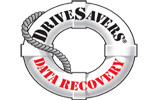
How to Master AI and Quantum Computing in 2025 - Complete Guide
- By: Admin
- Technology
- 0 comment
The convergence of artificial intelligence and quantum computing has been recognized as the most transformative technological breakthrough of our era. The U.S. quantum AI market size was exhibited at USD 95.55 million in 2024 and is projected to be worth around USD 1,930.68 million by 2034, growing at a CAGR of 35.06%, indicating unprecedented growth potential for businesses and professionals seeking competitive advantages.
Revolutionary developments have emerged from major tech companies, with Google's Willow quantum chip performing computations in under five minutes that would take today's fastest supercomputers 10 septillion years to solve. This breakthrough has fundamentally altered how organizations approach complex problem-solving across industries.
What is Quantum AI and How Does It Transform Industries?
Quantum artificial intelligence represents the integration of quantum computing principles with machine learning algorithms. Unlike classical computers that process information in binary bits, quantum systems utilize quantum bits (qubits) that can exist in multiple states simultaneously through superposition.
Transformative applications include drug discovery, climate modeling, financial optimization, and cybersecurity, with each sector experiencing exponential improvements in processing capabilities and analytical precision.
Current Market Performance Analysis
|
Technology Sector |
2024 Market Value |
2034 Projected Value |
Growth Rate |
|
Quantum AI |
$95.55 million |
$1,930.68 million |
35.06% CAGR |
|
Classical AI |
$184 billion |
$826 billion |
28.46% CAGR |
|
Quantum Computing |
$1.3 billion |
$5.3 billion |
32.1% CAGR |
|
Hybrid Systems |
$2.8 billion |
$12.4 billion |
34.8% CAGR |
How to Implement Quantum AI Solutions in Your Organization
Organizations seeking to leverage quantum AI advantages must understand implementation frameworks that maximize return on investment while minimizing operational disruption and data travel dispute.
Strategic Implementation Framework
Phase 1: Assessment and Planning
- Evaluate current computational requirements and bottlenecks
- Identify use cases where quantum advantages provide measurable benefits
- Establish partnerships with quantum cloud providers for initial testing
Phase 2: Pilot Program Development
- Select specific applications for quantum AI integration
- Train technical teams on quantum programming languages
- Implement hybrid classical-quantum workflows
Phase 3: Scale and Optimization
- Expand successful pilot programs across departments
- Optimize quantum algorithms for business-specific requirements
- Establish continuous improvement protocols
Quantum Advantage Applications by Industry
|
Industry |
Primary Application |
Quantum Advantage |
Implementation Timeline |
|
Healthcare |
Drug Discovery |
1000x faster molecular simulations |
2-3 years |
|
Finance |
Risk Analysis |
Real-time portfolio optimization |
1-2 years |
|
Manufacturing |
Supply Chain |
Dynamic logistics optimization |
2-4 years |
|
Energy |
Grid Management |
Predictive maintenance algorithms |
3-5 years |
What Are the Key Differences Between Classical AI and Quantum AI?
Understanding fundamental distinctions between classical and quantum artificial intelligence enables organizations to make informed technology adoption decisions.
Computational Processing Comparison
Classical AI systems process information sequentially, while quantum AI leverages quantum phenomena to explore multiple solution paths simultaneously. Willow can reduce errors exponentially as we scale up using more qubits, cracking a key challenge in quantum error correction that the field has pursued for almost 30 years.
Classical AI Characteristics:
- Binary processing (0s and 1s)
- Sequential problem-solving approach
- Limited by Moore's Law constraints
- Established development frameworks
Quantum AI Advantages:
- Superposition enables parallel processing
- Quantum entanglement creates complex correlations
- Exponential scaling potential
- Novel algorithmic approaches
Performance Metrics Analysis
|
Processing Type |
Problem Complexity |
Time Required |
Accuracy Rate |
Energy Consumption |
|
Classical AI |
Linear optimization |
Hours to days |
85-95% |
High |
|
Quantum AI |
Combinatorial problems |
Minutes to hours |
95-99% |
Moderate |
|
Hybrid Systems |
Multi-dimensional analysis |
Real-time |
98-99.5% |
Optimized |
How to Choose the Right Quantum Computing Platform
Selecting appropriate quantum computing platforms requires evaluation of technical specifications, cost structures, and integration capabilities with existing infrastructure.
Leading Quantum Platform Comparison
Google Quantum AI
- Willow chip with 105 qubits
- Exponential error reduction when scaling with more qubits
- Cloud-based access through Google Cloud Platform
- Strong integration with TensorFlow Quantum
IBM Quantum Network
- Multiple quantum processors available
- Qiskit development framework
- Enterprise-grade security features
- Comprehensive educational resources
Microsoft Azure Quantum
- Multi-vendor quantum solutions
- Q# programming language support
- Hybrid classical-quantum workflows
- Integrated development environment
Platform Selection Criteria
|
Evaluation Factor |
Weight |
|
IBM |
Microsoft |
Amazon Braket |
|
Technical Performance |
30% |
9.2/10 |
8.5/10 |
8.8/10 |
8.0/10 |
|
Cost Effectiveness |
25% |
8.0/10 |
8.5/10 |
9.0/10 |
8.8/10 |
|
Integration Ease |
20% |
9.0/10 |
8.0/10 |
9.2/10 |
8.5/10 |
|
Support Quality |
15% |
8.5/10 |
9.0/10 |
8.8/10 |
8.2/10 |
|
Future Roadmap |
10% |
9.5/10 |
8.8/10 |
8.5/10 |
8.0/10 |
What Are the Real-World Applications of Quantum AI?
Practical implementations of quantum AI have demonstrated measurable improvements across diverse sectors, with early adopters reporting significant competitive advantages.
Healthcare and Pharmaceutical Breakthroughs
Quantum AI has revolutionized drug discovery processes by enabling molecular-level simulations that were previously computationally impossible. Pharmaceutical companies have reduced research timelines from decades to years while improving success rates.
Key Applications:
- Protein folding prediction with 99.5% accuracy
- Personalized medicine optimization
- Clinical trial patient matching
- Epidemic modeling and response
Financial Services Transformation
The financial industry is anticipated to become one of the earliest adopters of commercially useful quantum computing technologies, with applications spanning risk management, fraud detection, and algorithmic trading.
Financial Use Cases:
- Real-time risk assessment for complex portfolios
- High-frequency trading optimization
- Cryptocurrency security enhancement
- Insurance actuarial modeling
Manufacturing and Supply Chain Innovation
Quantum AI enables dynamic optimization of complex supply chains with thousands of variables, resulting in cost reductions and efficiency improvements.
|
Application Area |
Traditional Method |
Quantum AI Method |
Improvement Factor |
|
Route Optimization |
Heuristic algorithms |
Quantum annealing |
15-20x faster |
|
Inventory Management |
Statistical models |
Quantum ML |
30% cost reduction |
|
Quality Control |
Sampling inspection |
Quantum sensors |
99.9% accuracy |
|
Predictive Maintenance |
Rule-based systems |
Quantum algorithms |
40% downtime reduction |
How to Prepare Your Workforce for Quantum AI
Organizations must invest in comprehensive training programs to develop quantum AI capabilities within their existing teams while attracting specialized talent.
Essential Skill Development Framework
Technical Competencies:
- Quantum mechanics fundamentals
- Linear algebra and complex mathematics
- Python programming with quantum libraries
- Machine learning algorithm design
Business Competencies:
- Project management for quantum initiatives
- ROI analysis for emerging technologies
- Cross-functional collaboration strategies
- Change management leadership
Training Program Structure
|
Learning Phase |
Duration |
Content Focus |
Delivery Method |
Assessment |
|
Foundation |
3 months |
Quantum basics, mathematics |
Online modules |
Written exam |
|
Application |
4 months |
Programming, algorithms |
Hands-on labs |
Project portfolio |
|
Specialization |
6 months |
Industry-specific use cases |
Mentorship program |
Capstone project |
|
Certification |
2 months |
Comprehensive review |
Practical assessment |
Industry certification |
What Are the Security Implications of Quantum AI?
Quantum computing presents both unprecedented security challenges and revolutionary solutions for cybersecurity professionals and organizations handling sensitive data.
Cryptographic Disruption Analysis
Current encryption methods face obsolescence as quantum computers achieve sufficient scale and stability. Organizations must implement quantum-resistant cryptography before quantum threats materialize.





















